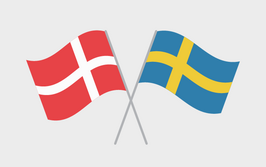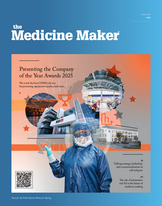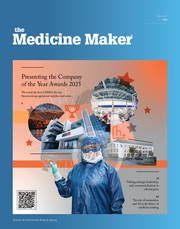On a (Public Health) Mission
Sitting Down With… Margaret Hamburg, President-elect, American Association for the Advancement of Science (AAAS); and Foreign Secretary, National Academy of Medicine.
Did you always want to work in public health?
My career has turned out very differently to the one I had in mind. Originally, I wanted to be an academic physician: teaching, taking care of patients, and doing research. But as the AIDS epidemic unfolded during my time as a medical student, I witnessed its devastating impact on individuals and on public health. This, combined with a new appreciation of the broader set of social, legal, ethical and economic issues involved, led me to switch over to public health and health policy. Since then, I’ve been committed to figuring out how to best serve those in need by bringing the best science to bear on public health problems.
I’ve been lucky enough to continue on my mission in a number of fascinating roles: Assistant Director of the National Institute of Allergies and Infectious Diseases at the NIH; Health Commissioner in New York City; Assistant Secretary for Planning and Evaluation at the US Department of Health and Human Services; I also had a brief stint in the world of philanthropy, working on biological terrorism and naturally occurring biological threats; and of course, FDA Commissioner.

Was it an easy decision to take the FDA job?
Becoming FDA Commissioner was never on my bucket list of things to do – and I never thought I would be in consideration! At that time, I was actually planning to work in another part of the administration: the Office of Science and Technology Policy in the White House. When I got the FDA call, I was a little taken aback because I hadn’t formally discussed the job with anyone – and if you were reading the papers at the time my name wasn’t being mentioned. The FDA is such an essential component of what the government can and should do to serve its people, so I felt it was an opportunity of a lifetime that I simply couldn’t pass up.
How do you look back on your role as FDA Commissioner?
I’m very proud of the work I did at the FDA. And once I started, I found it to be quite a good fit with my background interests, as well as the concerns I had at that time. I think I arrived at a critical moment for the agency. Back then, the FDA was under fire from the media and congress over food and drug safety issues. In a sense, the agency had circled the wagons somewhat with people worried about how to do their jobs in an increasingly hostile environment. I think I was able to provide some new leadership and perspectives.
It was also a time when the agency really needed to reposition itself for the challenges of the 21st century, which meant opening up and working in partnership with critical stakeholders, being more transparent, and trying to be as responsive and innovative as possible. It was also a critical time for advancing regulatory science – which has been underappreciated and undervalued – to support biomedical product research, product development and review. We also had to modernize our regulatory review systems, and make sure we were equipped to work in an increasingly globalized word.
I believe I was able to both renew the sense of the public health mission, which underpins the work of the FDA, and also to support the FDA’s extraordinary workforce; I was so impressed by the people who devote their lives to the FDA and its efforts.
What are the main challenges facing regulators today?
Being able to continue advancing and innovating in an environment that is, in many ways, increasingly anti-government and anti-regulation is just one grand challenge faced by regulators. They also have to deal with increasingly complex products – from both a scientific and technological standpoint – as well as the challenges of globalization. The demands on regulators are enormous and growing. Regulatory leaders must make the case for the work they do, which is so critical for the safety of citizens of every country in the world.
What are your objectives as Head of the American Association for the Advancement of Science (AAAS)?
I think it’s an important moment for the AAAS. The AAAS can be a voice for science and a voice for making sure the public and policy makers really understand what science is about, and why it’s important to continue to support science.
We are living in a world where science is increasingly devalued and the role of expertise is often dismissed. But so much of what we do is underpinned by science – whether we recognize it or not. Be it climate change, the environment, energy, preventing pandemics or the challenges of living in urban environments, investment in science has the potential to improve lives.
I also think it’s important to develop our interdisciplinary and cross-sectoral scientific efforts. We’ll get the most bang for our buck by making best use of the minds and resources we have, wherever we can find them. And while it is the American Association for the Advancement of Science, we must recognize that science is a global enterprise. Enhanced international engagement and collaboration must be a priority as well.

Over the course of my Biomedical Sciences degree it dawned on me that my goal of becoming a scientist didn’t quite mesh with my lack of affinity for lab work. Thinking on my decision to pursue biology rather than English at age 15 – despite an aptitude for the latter – I realized that science writing was a way to combine what I loved with what I was good at.
From there I set out to gather as much freelancing experience as I could, spending 2 years developing scientific content for International Innovation, before completing an MSc in Science Communication. After gaining invaluable experience in supporting the communications efforts of CERN and IN-PART, I joined Texere – where I am focused on producing consistently engaging, cutting-edge and innovative content for our specialist audiences around the world.



















